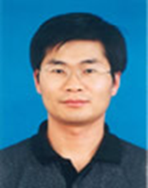1. A Deep Thinking about Big Data
Siwei Cheng. Chinese Academy of Sciences

Abstract:
As one of the milestones in Information Revolution, Big Data becomes one of the hottest topics recently. The market scale of Big Data is predicted to be 53 billion US dollars in 2017, increased from 5.1 billion US dollars in 2012. Facing such a Big Data wave, we have to cool-down and take a deep thinking to carefully analyze the characteristics, impacts, application prospects and problems. From management point of view, this talk believes that the most important impact of Big Data is to support all levels and all kinds of decision making. While decision making is to select an actionable solution, the techniques of decision support include prediction, evaluation and optimization. The talk will explore how Big Data can be used to find effective decision making based on data analysis. In addition, this talk will discuss some short-comings of Big Data, such as difficulties of handling qualitative variables, limitation of decision support, and possibility of privacy invasion. Furthermore, the talk will illustrate the important advantages of Big Data development in China, including the potentially largest information market and the strong competitiveness of new IT industries at the global society.
Biography:
Siwei Cheng serves as director of Research Center on Fictitious Economy and Data Science, Chinese Academy of Sciences, as well as dean of School of Management, Graduate School of Chinese Academy of Sciences. Professor Cheng Siwei was the Vice-Chairman of the Standing Committee of 9th and 10th National People’s Congress of the People’s Republic of China. He graduated from East China Institute of Chemical Engineering and later earned his MBA from UCLA. He is the Chairman of International Finance Forum and the President of Research Center on Fictitious Economy and Data Science at Chinese Academy of Sciences. He served as the external advisor of World Bank Institute.
Professor Cheng is a distinguished scholar in economic, financial and managerial fields as well as in chemical industry. He initiated the school of fictitious economy and his work has extensive influence on academia and China’s economic and financial circles. He has published 28 academic books in China and Europe, and over 120 articles in prestigious academic journals.
2. Exploring Big Data Analysis and Key Scientific Problems of Big Data
Zongben Xu, Member of Chinese Academy of Sciences, Xi'an Jiaotong University

Abstract:
Research on Big Data can be generally classified as data acquisition and management, data storage and query, data preprocessing and analysis, and data technology and applications. This talk will focus on some key research problems such as high-dimensional, repetitive sampling, computational theory, distributed computing, unstructured and virtualization problems. It will report the research findings regarding these problems.
3. On Mining Big Data
Philip S. Yu, Distinguished professor and the Wexler Chair in Information Technology at the Department of Computer Science, University of Illinois at Chicago.

Abstract:
The problem of big data has become increasingly importance in recent years. On the one hand, the big data is an asset that potentially can offer tremendous value or reward to the data owner. On the other hand, it poses tremendous challenges to distil the value out of the big data. The very nature of the big data poses challenges not only due to its volume, and velocity of being generated, but also its variety and veracity. Here variety means the data collected from various sources can have different formats from structured data to text to network/graph data to image, etc. Veracity concerns the trustworthiness of the data as the various data sources can have different reliability. One of the most critical big data applications is mining social networks. As social networks become increasingly popular, not only the scale of the networks grows rapidly with Facebook having more than 1 billion active users, but also the complexity of the networks increases over time. The vast scale of a network implies non-uniformity or heterogeneity, i.e., distinct behavior over different parts of the network, while the evolving network characteristics infers the dynamic and non-stationary behavior of the network. In this talk, we will discuss these big data issues and approaches to address them using social networks as the example.
Biography:
Dr. Philip S. Yu is a Distinguished professor and the Wexler Chair in Information Technology at the Department of Computer Science, University of Illinois at Chicago. Before joining UIC, he was at the IBM Watson Research Center, where he built a world-renowned data mining and database department. He is a Fellow of ACM and IEEE. Dr. Yu has been making tremendous, and globally recognized contributions to the principles of mining big data. In the past decade or two, much of his work has focused on data mining. However, Dr. Yu’s area has really always been big data, although the term “big data” has only come into vogue in recent years. He is the recipient of IEEE Computer Society’s 2013 Technical Achievement Award for “pioneering and fundamentally innovative contributions to the scalable indexing, querying, searching, mining and anonymization of big data”. With more than 800 publications and 300 patents, cited by more than 52,000 times with an H-index of 108, Dr. Yu is a leader in the data mining and data management community. According to Microsoft Academic Search, Dr. Yu ranks the second place among the top authors in the data mining area.
Dr. Yu is the Editor-in-Chief of ACM Transactions on Knowledge Discovery from Data. He is on the steering committee of the IEEE Conference on Data Mining and ACM Conference on Information and Knowledge Management and was a member of the IEEE Data Engineering steering committee. He was the Editor-in-Chief of IEEE Transactions on Knowledge and Data Engineering (2001-2004). He received a Research Contributions Award from IEEE Intl. Conference on Data Mining (ICDM) in 2003, the ICDM 2013 10-year Highest-Impact Paper Award, and the EDBT Test of Time Award (2014). Dr. Yu received his PhD from Stanford University.
4. Factor Spaces and Its Principle for Structure of Big Data Bases
Peizhuang Wang, College of Science, Liaoning Technical University, Fuxin 123000, China and Research Center of Fictitious Economy and Data Science, Chinese Academy of Sciences, Beijing 100190, China

Abstract:
E.F. Codd has laid the foundation for relational data bases. His notable contribution is building data bases on a mathematical foundation and directing data organization and operations in machine regularly and consistently. Unfortunately, a part of Codd’s rules are not adopted for big data information systems thoroughly. Codd puts data bases on ‘relation’, but there are arbitrary many relations exists in the world, which one is the base of data recording? The paper points out that factorial relation is the very relation to carry data on, which is represented by factor space, which is a framework to describe real word and thinking process. Factor space is a coordinate system with factorial axes; Things can be mapped as points in the space. The tableaus in data bases are samplings in factor space. As population’s theory, which provides principle for the construction of big data bases.
Biography:
Peizhuang Wang received the BS degree in Mathematics from Beijing Normal University, China in 1957. He was a professor of Beijing Normal University, and is currently with College of Science, Liaoning Technical University, and also with Research Center of Fictitious Economy and Data Science, Chinese Academy of Sciences. His research interests include optimization and factorial analysis applied in data science.
5. TEI@I Methodology and Applications to Economic Analysis and Forecasting
Shouyang Wang, Center for Forecasting Science, Chinese Academy of Sciences; Academy of Mathematics and Systems Science, Chinese Academy of Sciences;
http://sourcedb.cas.cn/sourcedb_amss_cas/yw/rck/200907/t20090722_2134098.html; Management School, The University of Chinese Academy of Sciences

Abstract:
A methodology is introduced for study complex systems, especially economic and social systems. The methodology is named TEI@I Methodology which implies that four components are fundamental in studying complex systems. The methodology is illustrated via economic analysis and forecasting.
6. Big Data: Facing the Complexities
Xueqi Cheng, Professor at the Institute of Computing Technology, Chinese Academy of Sciences (ICT-CAS), and the director of the CAS Key Laboratory of Network Data Science and Technology.

Abstract:
Big data have emerged due to the interaction between human, machine and thing in the Cyberspace. The increase of the scale and complexity of the data calls for new techniques and architecture for capturing, storing, managing, and processing the data so as to mine the big values. In this talk, we will talk about the major scientific challenges brought by big data, i.e. data complexity, computation complexity and system complexity. The three complexity problems require us to take a brand new view in data, algorithm and computational systems. It is expected to further discover the common laws within big data, study the reduced and incremental computing theory, and bring the life-cycle of data into system design. A bunch of related works as well as our practices in these perspectives will be covered in this talk.
Biography:
Xueqi Cheng is a Professor at the Institute of Computing Technology, Chinese Academy of Sciences (ICT-CAS), and the director of the CAS Key Laboratory of Network Data Science and Technology. His main research interests include Network Science, Web Search and Data Mining, Big Data Processing and Distributed Computing Architecture, etc. He has published more than 150 publications in prestigious journals and conferences, including IEEE ToIT, IEEE TKDE, Journal of Statistics Mechanics: Theory and Experiment, Physical Review E., ACM SIGIR, WWW, ACM CIKM, WSDM, IJCAI, ICDM and so on. He has won the Best Paper Award in CIKM (2011) and Best Student Paper Award in SIGIR (2012). He is currently serving on the editorial board of Journal of Computer Science and Technology, Journal of Computer, etc. Prof. Cheng is a recipient of the China Youth Science and Technology Award (2011), the Young Scientist Award of Chinese Academy of Sciences (2010), CVIC Software Engineering Award (2008), the Second prize for the National Science and Technology Progress (2004), etc.
|












